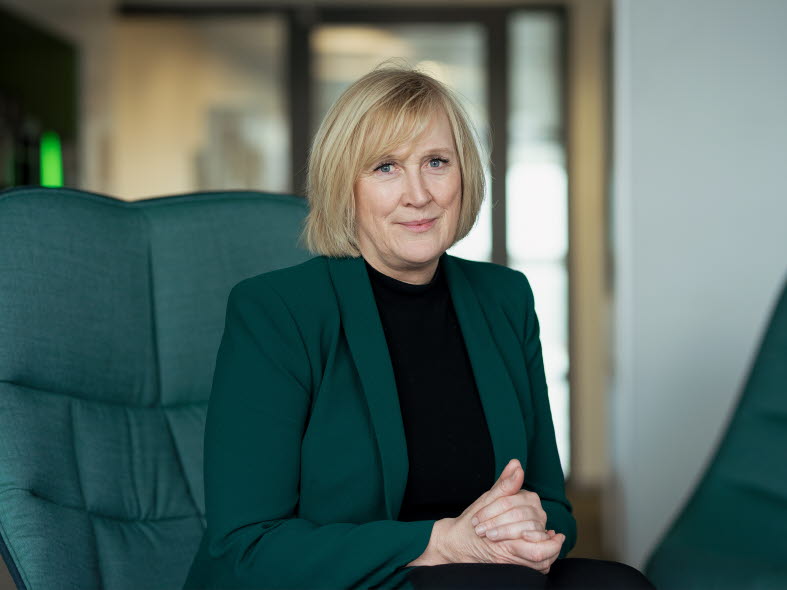Staying curious is the key to development

Torun Gadderud, Executive Client Relationship Manager, discusses how she has grown long-term at SEB, despite having a background from a completely different industry before joining.
Torun is an Executive Client Relationship Manager and has been working in banking for 23 years. She’s been with SEB since 2018.
What do relationships mean to you personally?
“It’s the heart of the whole business that we’re operating. It’s easy to say that the client is the most important, but to really demonstrate that is hard. You need to think long-term in terms of the client and the colleagues. What SEB is doing, even during tough times like the 2020 pandemic is standing by the clients. This long-term mindset is important to me. It allows us to see the consequences of our actions, both good and bad.”
What do you feel makes SEB a friendly and welcoming environment?
“It’s the people. A positive attitude is key to an enjoyable workplace. We are allowed to give our opinions, we are asked for them, and we are made to feel important. When people feel seen, they want to do their best, and this creates a healthy company culture.”
“Even when you have different opinions, everyone deserves respect. I believe this respect will go a long way in developing trust and teamwork. The most difficult task is to have effective communication and practice active listening. An environment where everyone feels they have a voice is important.”
How important is it for you to stay curious and continue to grow?
“Staying curious is the key to development. I came into banking in 2001 with an education and background in the hotel industry. My growth journey in the finance sector and gaining new responsibilities is what makes me excited to get up in the morning. You can always learn from clients, colleagues, and the organisation. If I couldn’t, I don’t think I would be working here.”
“Working in coverage, where your clients are professional family offices and private wealthy individuals, less women are traditionally employed over men. When I came to SEB I was pushed forward and encouraged as much as any man. SEB has shown me a lot of trust and given me important clients. SEB needs to continue to develop this diversity further.”
Do you think SEB’s encouragement of curiosity and development has led to longer careers in the company?
“I think so, and I think it’s so important. They have new and different skills, and we can learn from them, but they can also learn from older colleagues too. If you are eager to learn, especially with the upcoming technologies, it gives you a way of understanding how society will look in the future. SEB takes care of all their employees, young and old.”
What does ‘innovating for a sustainable future’ mean to you personally?
“It’s why I want to work in finance; knowing you can be in finance and have an impact on driving discussion on this important topic with our clients is essential. To make sure capital is flowing in the right direction. It’s not just about making people rich, but also about being a vital part in building a sustainable world.”
How does SEB positively impact society?
“SEB looks at it as a transformation. It’s not only about fulfilling regulatory requirements, it's about making a real difference. The banking sector is crucial to the modern economy and our role is to take in funds, pool them and lend them to those who need funds. A bank has the influence to guide customer behaviour towards sustainability. SEB has an important role in this transformation.”
What do you think is on the horizon that will be impactful in the world of finance and sustainability?
“It’s hard not to say technology. It is a revolution that has already changed our daily habits and we can also use it to improve lives. An example is that technology can promote education and women in the third world can be empowered once they have education and access to funds. Lack of financial opportunity for women is a global problem as they have a potential to influence a better future. Impact investing is something the bank is putting focus on at the moment, which means a lot to me.”
How do you practice sustainability in your everyday life?
“I have decreased eating meat to maximum 2 times per week. I’ve also stopped shopping fast fashion and started recycling as much as possible. I am looking at labels when shopping and reducing the use of plastic by bringing my own bag for fruit and vegetables. I’m also driving less and using the free of charge collective transport in Luxembourg.”
